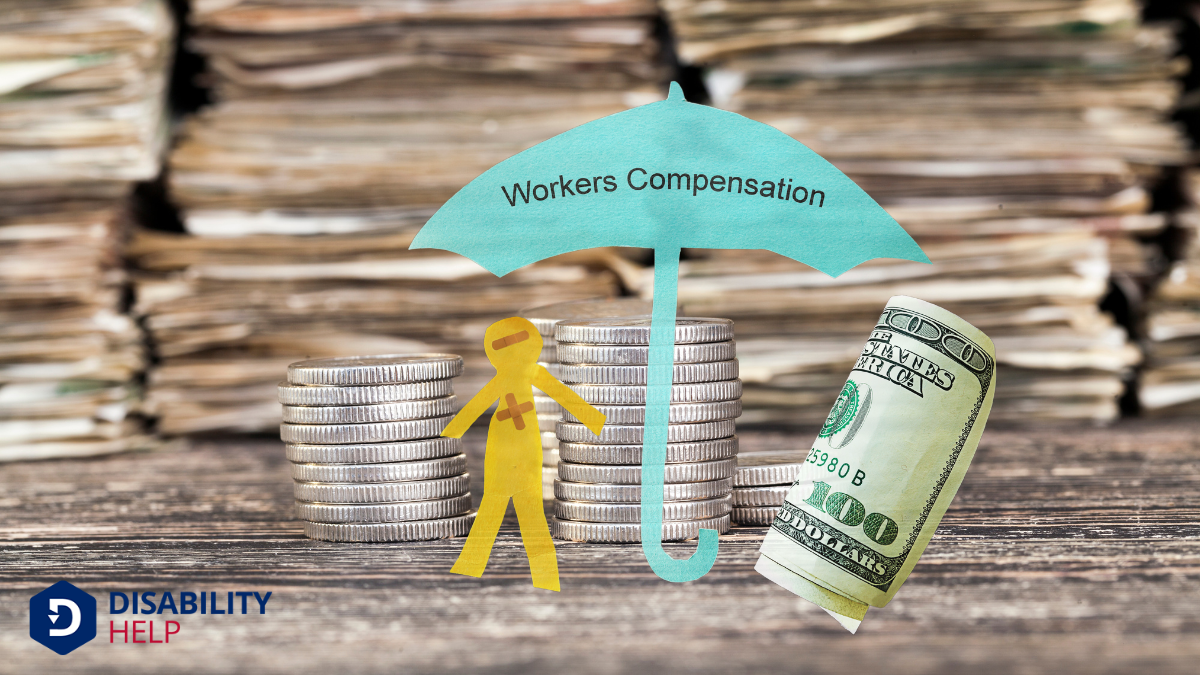I've often pondered the staggering figures involved in the highest workers' comp settlements. Imagine a payout exceeding $10 million, often linked to life-altering injuries requiring lifelong care. These extraordinary amounts reflect not just the severity of injuries but the ripple effect on one's livelihood. So, what factors propel these settlements to record-breaking heights, and how do state laws influence them? Let's explore the intricate web of workers' compensation.
Key Takeaways
- Record-breaking workers' comp settlements can exceed $10 million, often involving catastrophic injuries or disabilities requiring lifelong care.
- The highest settlements typically cover extensive medical costs and lost wages due to permanent inability to work.
- State laws significantly influence maximum settlement amounts, with states like California offering higher caps due to living costs.
- Legal representationThe way people with disabilities are depicted in media, culture, and politics, often influencing pub... is crucial in securing high settlements, especially in complex or severe injury cases.
- Notable high settlements highlight the workers' compensation system's role in providing financial stability post-injury.
Understanding Workers' Compensation Settlements
When steering through the world of workers' compensation settlements, it’s important to understand the basics to make informed decisions.
I've learned that these settlements provide financial compensation to employees injured at work, covering medical expenses and lost wages.
In my experience, knowing the different types of settlements is essential. You might encounter a lump-sum payment, where everything is paid at once, or structured settlements, offering payments over time.
It’s crucial to grasp that accepting a settlement usually means giving up future claims related to the injury. So, consider your long-term needs.
Also, understanding the negotiation process can empower you to secure a fair deal. Knowing your rights and consulting professionals can greatly impact your settlement outcome.
Factors Influencing Settlement Amounts

Although managing workers' compensation settlements can be complex, understanding the factors influencing settlement amounts is essential for securing a fair outcome.
First, the severity of the injury plays an important role. If the injury is permanent and life-altering, the settlement will likely be higher.
Second, consider the medical expenses associated with treatment and future care needs. High ongoing medical costs can greatly increase settlement amounts.
Third, the injured worker's age and earning capacity matter. Younger workers with a long career ahead may receive more to account for lost wages.
Finally, state laws and regulations affect settlements, as each state has different guidelines.
Notable Record-Breaking Settlements
When I think about the largest workers' comp payouts, I'm often amazed by the sheer scale of these unprecedented settlement cases.
These record-breaking settlements highlight not only the financial implications but also the significant impact on the lives of the individuals involved.
Let's explore some of these eye-opening cases and see what made them stand out.
Largest Workers' Comp Payouts
In the domain of workers' compensation, a few settlements stand out as record-breaking in their sheer magnitude. These payouts often result from severe injuries requiring lifelong care, leading to compensation in the millions.
I came across one case where a worker received over $10 million after a catastrophic injury that left him unable to work or care for himself independently. It’s astounding how these settlements, though rare, highlight the importance of adequate compensation for the injured.
While it's easy to get caught up in the numbers, these payouts represent more than just money. They’re about ensuring the injured have the means to live as comfortably as possible.
The process may be complex, but understanding these significant settlements can help grasp the system's impact.
Unprecedented Settlement Cases
In exploring unprecedented settlement cases, I’ve discovered a domain where the compensation figures seem almost unreal yet reflect the serious nature of the injuries sustained.
These record-breaking settlements aren’t just about the money; they’re about acknowledging life-altering conditions. One standout case involved a $10 million settlement for a worker who suffered severe spinal injuries, resulting in permanent paralysis.
Another involved $8.9 million for a worker exposed to harmful chemicals leading to chronic illnesses. These figures highlight the gravity of the situations and the legal battles fought to secure them.
Understanding these settlements requires recognizing the catastrophic impact on lives. It's not just numbers; it's about restoring dignity and providing hope for a future despite the odds.
The Role of State Laws in Settlement Amounts
Although maneuvering workers' compensation settlements can be complex, understanding the role of state laws is vital. Each state has its own set of rules and regulations that influence how settlement amounts are determined.
I've found that these laws dictate everything from the maximum compensation one can receive to the types of injuries that qualify for benefits. In some states, the laws are more generous, allowing for higher settlements, while others have stricter limits.
For instance, states like California and New York tend to offer higher caps on settlements due to their cost of living and legislative frameworks.
It's important to familiarize yourself with your state's specific laws, as this knowledge can greatly impact the settlement amount you're entitled to.
Case Study: The Largest Workers' Comp Settlement

When I first learned about the record-breaking workers' comp settlement, I was amazed at how it reshaped the conversation around workers' rights.
This case didn't just set a financial precedent; it highlighted essential factors that led to such a significant settlement.
Let's explore how this landmark case has influenced the landscape of workers' compensation.
Record-Breaking Settlement Amount
You might be surprised to learn that the largest workers' comp settlement in history reached an astonishing $10 million, setting a new benchmark for compensation in workplace injury cases.
This groundbreaking settlement occurred when a worker suffered severe injuries that drastically altered their life.
I can imagine how overwhelming the process must have been, from the initial injury to the eventual compensation agreement.
The case highlights the potential financial relief available to those who navigate the complexities of workers' comp claims successfully.
It also underscores the importance of having skilled legal representation to guarantee fair compensation.
While $10 million is exceptional, it serves as a reminder of how life-changing these settlements can be for injured workers and their families.
Impact on Workers' Rights
The record-breaking $10 million workers' comp settlement not only set a new financial precedent but also markedly influenced workers' rights.
As I reflect on this case, it’s clear that such a significant payout sends a powerful message to employers and insurance companies: neglecting worker safety and well-being isn’t just unethical; it’s costly.
This settlement empowered workers by showing that their rights can lead to substantial compensation when violated. It encouraged more employees to speak up about unsafe conditions, knowing legal backing could support them.
The case also pressured companies to prioritize safety measures, reducing the risk of costly claims. By setting this precedent, workers now have a stronger voice, and the balance of power has shifted slightly in their favor.
Factors Leading to Settlement
Although it's tempting to focus solely on the massive payout, understanding the factors leading to this landmark workers' comp settlement provides essential insights into the case's complexity.
First, the severity of the injury played a vital role. The worker involved faced lifelong medical needs and lost earning capacity, making the compensation substantial.
Second, the employer's potential negligenceA legal concept where a party fails to exercise reasonable care, resulting in harm to another person... can't be ignored. Evidence suggested inadequate safety measures, which greatly strengthened the worker's claim.
Third, the lengthy legal process, involving expert testimonies and detailed investigations, added pressure for a settlement.
Finally, the legal representation's expertise proved invaluable, skillfully maneuvering through complex negotiations.
The Impact of Injury Severity on Settlements
When considering workers' comp settlements, injury severity plays a crucial role in determining the payout. I’ve found that the more severe the injury, the higher the compensation tends to be. This makes sense because serious injuries often require extensive medical treatment and can greatly impact one’s ability to work.
For example, a broken bone might lead to a moderate settlement, but a life-altering injury, like a spinal cord injury, usually results in much higher compensation. It's not just about medical bills, though; the settlement also considers pain, suffering, and long-term effects.
Understanding how injury severity influences settlements can help you anticipate what to expect and guarantee you receive fair compensation for the hardships you've endured.
How Worker Salary Affects Compensation
When considering workers' comp settlements, I've noticed that a worker's salary plays a vital role in determining the compensation amount.
Higher wages can lead to more substantial settlement figures because they directly influence the benefits calculation.
It's important to understand how your income level might affect the benefits you receive in case of a workplace injury.
Salary Impacts Settlement Amount
A worker's salary often plays a pivotal role in determining the settlement amount in a workers' compensation case.
When I think about it, your salary acts as a benchmark for compensation calculations. Higher salaries usually lead to higher settlements since the compensation is often based on a percentage of your average weekly wage.
For instance, if you earn a substantial salary, your potential settlement could be considerably higher than someone with a lower income.
It’s important for you to understand that the percentage typically covers two-thirds of your average wage, subject to state laws and caps.
I always remind myself that understanding this connection can help me anticipate what to expect in a settlement, making the process a bit less intimidating.
Wage Influence on Benefits
Understanding the link between salary and settlement amounts naturally leads us to explore how wages influence the benefits you might receive. Your wage directly impacts the compensation awarded in a workers' comp claim. Generally, higher earnings result in more substantial benefits. This is because workers' compensation benefits are typically calculated as a percentage of your average weekly wage.
So, if you earn more, your compensation reflects that, providing you with more significant financial support during recovery. However, it's essential to understand that there might be caps on benefits, depending on your jurisdiction.
These caps can limit the maximum amount you can receive, regardless of your salary. By comprehending this relationship between wages and benefits, you can better anticipate the financial assistance available during challenging times.
Income Level Considerations
Maneuvering the complexities of income level considerations reveals how a worker's salary considerably affects compensation in workers' comp cases.
If you earn a higher salary, your benefits might appear more substantial, but there's a catch. Most workers' comp benefits are based on a percentage of your average weekly wage, typically around two-thirds. However, there's a cap on the maximum payout, which means high earners may not receive benefits reflecting their full salary.
Navigating these caps can be frustrating if your income exceeds the threshold. On the flip side, if your salary is lower, your benefits might match a larger portion of your earnings.
Understanding this balance is essential for setting realistic expectations and planning effectively when considering a workers' comp settlement.
Navigating the Workers' Compensation Process

When you find yourself guiding through the workers' compensation process, understanding each step is vital to securing the benefits you deserve.
I've learned that knowledge can be your greatest ally. Here's a quick rundown of key actions you should consider:
- Report the Injury: Inform your employer immediately. Delays can complicate your claim.
- Seek Medical Attention: Prioritize your health. Proper documentation from a healthcare professional supports your case.
- File a Claim: Submit your claim promptly. Timing is critical to guarantee you're within the legal window.
Navigating this process can feel overwhelming, but taking these steps helps you stay on track.
Challenges Faced by Injured Workers
As you move through the workers' compensation process, it's important to acknowledge the hurdles injured workers often encounter. From my experience, one of the toughest challenges is maneuvering through the complex paperwork. It feels like every form is written in a language only lawyers understand.
There's also the uncertainty of not knowing if your claim will be approved or how long it will take. Dealing with medical appointments and insurance companies can feel overwhelming, adding stress to an already difficult situation.
Another significant challenge is the financial strain. While waiting for benefits, many struggle to make ends meet. It's frustrating and can leave you feeling helpless.
Lessons Learned From High-Profile Settlements
Reflecting on high-profile workers' comp settlements, I've seen how they can offer valuable insights for steering your own case.
The stories behind these settlements reveal patterns and strategies that can be essential for anyone traversing similar waters.
Here are a few takeaways:
- Documentation Matters: Thorough and organized documentation of your injury and treatment can greatly strengthen your case.
- Legal Expertise is Key: Hiring an experienced workers' comp attorney often leads to better outcomes, as they understand the nuances of the system.
- Patience Pays Off: High-profile cases often take time. Being patient can lead to more favorable settlements, as rushing might result in settling for less.
These lessons highlight the importance of preparation, expert guidance, and patience in achieving a successful settlement.
Conclusion
Steering through workers' compensation can be challenging, but understanding its intricacies is essential. High-profile cases highlight the importance of solid legal representation and recognizing the factors that influence settlements, like injury severity and state laws. These examples teach us that while the process is complex, ensuring fair compensation is critical for an injured worker's future. Remember, you're not alone—reach out for help, and don't hesitate to fight for the settlement you deserve.






